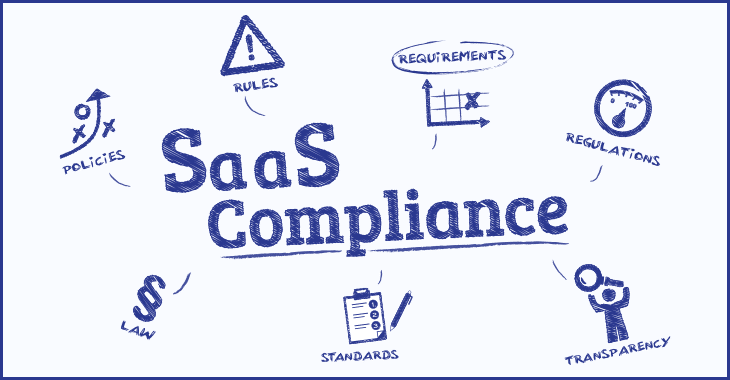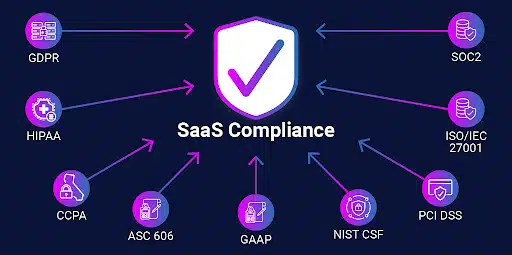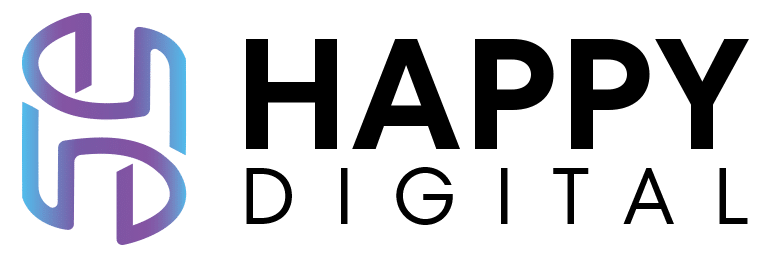In the intricate landscape of Software as a Service (SaaS), the challenge of managing global compliance across borders looms large for organizations aiming to operate on an international scale. The interplay of diverse regulatory frameworks demands a nuanced approach that goes beyond mere legal checkboxes. It is within this dynamic environment that SaaS enterprises must navigate a labyrinth of rules and guidelines to ensure not only legal adherence but also reputational resilience and sustainable growth. As the digital world continues to evolve, the question remains: How can SaaS businesses effectively navigate the intricate web of global regulations to thrive in an increasingly interconnected marketplace?
Understanding SaaS Compliance in the Global Market
Navigating the landscape of SaaS compliance demands a firm grasp of the basics and an awareness of why global adherence is paramount for SaaS enterprises. With regulations like GDPR and HIPAA setting stringent standards, failing to comply can have dire consequences, including financial penalties and damage to a company’s reputation. Therefore, for SaaS businesses, understanding the essentials of compliance and the significance of operating within the bounds of global regulations are non-negotiable aspects of sustainable growth and success.
The Basics of SaaS Compliance
Ensuring compliance with global regulations is a critical aspect of operating Software as a Service (SaaS) businesses in the international market. SaaS compliance involves adhering to regulatory requirements during the development, deployment, and maintenance of SaaS products. This encompasses aspects such as data privacy, security protocols, and legal frameworks specific to each region where the SaaS application operates. To streamline compliance processes, companies often utilize SaaS compliance software designed to assist in monitoring and ensuring adherence to relevant laws and standards. By integrating compliance considerations into the core of SaaS development practices, businesses can mitigate risks, build trust with customers, and demonstrate commitment to upholding the highest standards of data protection and regulatory compliance in the global market.
Why Global Compliance is Critical for SaaS Businesses
Ensuring global compliance is paramount for SaaS businesses due to the complexity of navigating different regulatory environments worldwide. Non-compliance can have significant repercussions, impacting the seamless operation of SaaS platforms and potentially leading to legal consequences. Understanding the importance of adhering to regional and global regulations is key to safeguarding data privacy, maintaining trust with customers, and sustaining the growth of SaaS enterprises.
Navigating Different Regulatory Environments
Comprehensive understanding and adherence to global compliance standards are imperative for SaaS businesses seeking to operate across diverse regulatory environments. Navigating different regulatory landscapes requires meticulous attention to detail, proactive monitoring of evolving laws, and swift adaptation to ensure ongoing compliance. SaaS companies must prioritize staying informed about regional requirements, engaging legal experts, and implementing robust compliance mechanisms to mitigate risks and maintain credibility in the global market.

Impact of Non-Compliance on SaaS Operations
With the increasing complexity of global regulatory environments, SaaS businesses must recognize that non-compliance can profoundly disrupt their operations and jeopardize their standing in the international market.
| Impact of Non-Compliance on SaaS Operations |
|---|
| – Penalties and fines |
| – Damage to reputation |
| – Loss of customer trust |
| – Legal repercussions |
| – Hindered business growth |
Key Regulations Affecting SaaS Businesses Internationally
Navigating the global regulatory landscape is paramount for SaaS businesses, with key regulations like GDPR and HIPAA playing a significant role. GDPR, a cornerstone of data protection in Europe, imposes stringent requirements on how SaaS companies handle personal data. On the other hand, HIPAA compliance is crucial for SaaS applications in the healthcare sector to safeguard patient information and ensure regulatory adherence internationally.
GDPR and Its Implications for SaaS
Ensuring compliance with the General Data Protection Regulation (GDPR) is paramount for SaaS businesses expanding internationally due to its profound impact on data privacy standards and regulatory requirements globally. The GDPR, enacted by the European Union, sets stringent rules for the collection, storage, and processing of personal data, affecting any organization that handles EU citizens’ information. SaaS companies must adhere to GDPR principles such as data minimization, purpose limitation, and data subject rights to operate lawfully in the EU and maintain customer trust. Non-compliance with GDPR can lead to substantial fines, damaged reputation, and loss of business opportunities. Therefore, understanding GDPR’s implications and implementing robust data protection measures are essential for SaaS businesses operating on an international scale.
HIPAA Compliance for Healthcare SaaS Applications
For SaaS businesses venturing into the healthcare sector, compliance with the Health Insurance Portability and Accountability Act (HIPAA) is a critical regulatory requirement influencing their operations on a global scale. HIPAA sets the standard for protecting sensitive patient data, requiring robust security measures, strict access controls, and comprehensive risk assessments.
Any SaaS application that handles electronic protected health information (ePHI) must adhere to HIPAA regulations to ensure the confidentiality and integrity of patient records. Non-compliance with HIPAA not only exposes businesses to substantial fines and legal penalties but also undermines trust with healthcare providers and patients. Therefore, SaaS companies operating in the healthcare space must prioritize HIPAA compliance as a fundamental aspect of their business strategy to navigate the complex regulatory landscape successfully.
Strategies for Managing SaaS Compliance Across Borders
Efficiently managing SaaS compliance across borders is essential for businesses navigating the intricate web of global regulations. Centralizing compliance management within SaaS operations can streamline processes and ensure adherence to diverse regulatory frameworks. Additionally, utilizing specialized SaaS compliance software solutions can enhance data privacy, security, and transparency practices on an international scale.

Centralizing Compliance Management in SaaS
Achieving streamlined management of compliance in Software as a Service (SaaS) across international borders is essential for companies navigating the intricate web of global regulations. To centralize compliance management effectively, consider the following strategies:
- Establish a Clear Compliance Framework: Define compliance requirements for each jurisdiction.
- Implement Regular Compliance Audits: Conduct audits to ensure adherence to regulations.
- Provide Ongoing Employee Training: Educate staff on compliance obligations.
- Utilize Compliance Automation Tools: Implement software solutions to streamline compliance processes.
Utilizing SaaS Compliance Software Solutions
In navigating the complexities of global SaaS compliance, utilizing specialized software solutions is paramount for organizations seeking efficient management across borders. These compliance software tools should offer features tailored to address the intricate requirements of various regulatory frameworks, ensuring data privacy, security, and transparency. By leveraging such technologies, companies can streamline compliance processes, mitigate risks, and uphold their commitment to meeting international standards effectively.
Features to Look for in Compliance Software
Navigating the intricate landscape of global compliance in Software as a Service (SaaS) calls for a comprehensive understanding of the essential features to seek in compliance software solutions.
- Real-time Monitoring: Constantly track compliance status.
- Automated Alerts: Receive notifications for non-compliance.
- Customizable Reporting: Tailor reports to specific regulatory requirements.
- Integration Capabilities: Seamlessly integrate with existing systems for streamlined compliance management.
Happy Digital’s Best Practices for SaaS Development and Compliance
In today’s competitive SaaS landscape, Happy Digital’s best practices for SaaS development and compliance offer valuable insights into integrating compliance seamlessly into the development lifecycle. With a focus on continuous compliance monitoring, SaaS businesses can ensure that they meet regulatory requirements throughout their operations. By adopting these practices, companies can enhance their data privacy, security, and transparency measures, safeguarding against potential penalties and reputational risks.
Integrating Compliance into the SaaS Development Lifecycle
To ensure comprehensive global compliance in SaaS, integrating compliance measures into the SaaS development lifecycle is a critical aspect for companies seeking to navigate the intricate landscape of international regulations. This integration fosters a culture of compliance and risk management throughout the development process. Key elements to consider include:
- Early Compliance Assessments: Conducting compliance assessments at the onset of development.
- Regular Training Programs: Implementing ongoing training on compliance requirements for developers.
- Automated Compliance Checks: Incorporating automated tools to ensure continuous compliance monitoring.
- Documentation Standards: Maintaining detailed documentation of compliance efforts and outcomes.
Continuous Compliance Monitoring
Continuous compliance monitoring plays a pivotal role in upholding global regulatory standards within the realm of SaaS development, ensuring ongoing adherence to diverse data protection laws and regulations. By continuously monitoring compliance, SaaS companies can proactively identify and address potential violations, mitigate risks, and maintain trust with customers. Below is a table outlining key aspects of continuous compliance monitoring:
| Aspects | Description | Importance |
|---|---|---|
| Real-time Monitoring | Constantly monitoring systems and processes for compliance deviations | Immediate issue identification |
| Automated Alerts | Setting up alerts for non-compliance events to enable quick responses | Timely intervention |
| Regular Audits | Conducting periodic audits to assess compliance levels | Ensuring sustained regulatory adherence |
Implementing robust continuous compliance monitoring mechanisms is vital for SaaS businesses to navigate the complex regulatory landscape effectively.
Challenges in SaaS Product Development and Compliance
Navigating the intricate intersection of SaaS product development and compliance poses significant challenges for companies expanding their services globally. In this complex landscape, companies encounter various hurdles that demand careful navigation to ensure both product innovation and adherence to regulatory requirements. Some of the key challenges include:
- Divergent Regulatory Frameworks: SaaS businesses must grapple with a multitude of regional and global regulations, each with its own set of requirements and standards.
- Data Privacy Concerns: Ensuring the privacy and security of user data across different geographies while complying with stringent data protection laws adds layers of complexity to product development.
- Rapid Technological Advancements: The fast-paced nature of technological advancements often outpaces regulatory updates, leading to potential gaps in compliance that companies need to address proactively.
- Cross-Border Data Transfers: Managing data transfers between countries with varying data localization requirements and restrictions poses a significant challenge for SaaS providers.
Addressing these challenges requires a proactive approach to compliance management, a deep understanding of the regulatory landscape, and agile development processes that can adapt to evolving requirements while driving innovation in SaaS products.
Future Trends in SaaS Application Development and Compliance
As SaaS companies navigate the intricate landscape of global compliance and product development challenges, future trends in SaaS application development and compliance are poised to shape the industry’s trajectory significantly.
| Future Trends | Description |
|---|---|
| 1. Artificial Intelligence | Integration of AI for enhanced data analysis, automation, and personalized user experiences. |
| 2. Edge Computing | Utilizing edge computing to reduce latency, enhance performance, and optimize data processing. |
| 3. Quantum Computing | Exploring the potential of quantum computing for complex computations and improved security measures. |
| 4. Blockchain Technology | Implementing blockchain for enhanced data security, transparency, and decentralized applications. |
These future trends are driven by the need for SaaS companies to stay ahead in a competitive landscape while ensuring compliance with evolving regulations. Artificial intelligence enables SaaS applications to learn from data patterns, enhancing decision-making processes. Edge computing brings processing closer to the data source, improving speed and efficiency. Quantum computing offers unparalleled computational power for complex tasks. Blockchain technology ensures secure and transparent transactions. Embracing these trends will not only revolutionize SaaS application development but also reinforce compliance efforts in a rapidly changing regulatory environment.
Building a Compliance-Focused Culture in SaaS Teams
Establishing a culture of prioritizing compliance within SaaS teams is fundamental for ensuring regulatory adherence and operational excellence in the fast-paced technology landscape. To build a compliance-focused culture effectively, SaaS companies can consider the following strategies:
- Leadership Buy-In: Securing commitment from top management to prioritize compliance sets the tone for the entire organization.
- Continuous Training: Providing regular training sessions on compliance requirements ensures that team members stay updated on relevant regulations.
- Clear Policies and Procedures: Developing well-defined policies and procedures for handling data, security, and privacy issues fosters a culture of compliance awareness.
- Accountability and Recognition: Holding team members accountable for compliance responsibilities and recognizing their efforts in upholding regulations can reinforce the importance of compliance within the organization.
Auditing and Reporting for SaaS Compliance
To ensure robust regulatory compliance within SaaS operations, the implementation of thorough auditing and reporting mechanisms is imperative. Auditing allows SaaS companies to track activities, monitor compliance with regulations, and identify any potential issues that need to be addressed promptly. Reporting, on the other hand, involves documenting these audit findings and communicating them effectively to stakeholders, regulators, and customers. Together, auditing and reporting create transparency, accountability, and a culture of continuous improvement in compliance practices.
| Auditing and Reporting for SaaS Compliance |
|---|
| Auditing |
| Track activities to ensure compliance |
| Monitor adherence to regulations |
| Identify and address compliance issues |
The Role of AI and Machine Learning in SaaS Compliance
The integration of AI and machine learning technologies is revolutionizing the landscape of SaaS compliance, enhancing efficiency and precision in regulatory adherence for companies operating on a global scale. This advanced technology empowers SaaS businesses to navigate the intricate maze of international regulations with greater ease and accuracy. Here are key ways AI and machine learning are transforming SaaS compliance:
- Automated Compliance Monitoring: AI algorithms can continuously monitor regulatory changes across multiple jurisdictions, ensuring real-time updates and proactive compliance measures.
- Risk Assessment and Prediction: Machine learning models can analyze vast amounts of data to identify potential compliance risks, enabling companies to address issues before they escalate.
- Personalized Compliance Strategies: AI can customize compliance strategies based on specific regulatory requirements in different regions, optimizing resources and minimizing compliance gaps.
- Enhanced Data Security: Machine learning tools can enhance data security measures by detecting anomalies and potential breaches, bolstering overall compliance with data protection laws.
Adapting SaaS Operations to Global Regulations
In navigating the global landscape of SaaS compliance, adapting operations to meet diverse regulations is paramount for sustained growth and risk mitigation. SaaS companies operating across borders must proactively adjust their operations to align with the intricate web of regional and international regulations governing data privacy, security, and transparency. This adaptability necessitates a thorough understanding of the legal requirements in each jurisdiction where the company operates, as well as a commitment to implementing robust compliance measures.
One key aspect of adapting SaaS operations to global regulations is the need for a comprehensive compliance program that encompasses not only current regulations but also anticipates future changes. This proactive approach enables companies to stay ahead of evolving compliance requirements and minimizes the risk of non-compliance penalties. Moreover, adapting SaaS operations to global regulations involves establishing clear data governance policies, implementing secure data handling practices, and ensuring transparency in data processing activities.
Effective adaptation to global regulations also requires ongoing monitoring of regulatory developments and swift adjustments to internal processes as needed. By staying agile and responsive to changing compliance landscapes, SaaS companies can demonstrate their commitment to regulatory compliance, build trust with customers, and position themselves for sustainable growth in an increasingly regulated global marketplace.
Comprehensive Software Development Solutions
Unlock the potential of digital transformation with our bespoke software development services, engineered to foster innovation, maximize efficiency, and catalyze business growth.
Conclusion
In conclusion, managing global compliance in the SaaS industry is essential for organizations to navigate the intricate web of regulations across borders. By understanding key regulations, implementing strategies, and fostering a compliance-focused culture, SaaS enterprises can ensure operational resilience and sustained success on a global scale. Adapting operations to meet global regulations while leveraging technologies like AI and machine learning will be crucial for staying ahead in an increasingly complex regulatory landscape.
How Do Cultural Differences Impact Saas Compliance Strategies When Expanding Globally?
Cultural differences significantly influence SaaS compliance strategies during global expansion by necessitating nuanced approaches to navigate varying legal, social, and business norms. Tailoring policies and practices to align with diverse cultural contexts enhances regulatory adherence and operational effectiveness.
What Are the Key Considerations for Saas Businesses When Navigating Data Localization Requirements in Different Countries?
Navigating data localization requirements in different countries requires SaaS businesses to meticulously assess legal frameworks, understand data residency obligations, implement encryption measures, and leverage secure cloud infrastructures. Compliance with diverse regulations is crucial for operational continuity and international expansion.
How Can Saas Companies Effectively Communicate Their Compliance Efforts to Customers and Stakeholders Across Diverse Regions?
To effectively communicate compliance efforts across diverse regions, SaaS companies should adopt transparent and proactive communication strategies tailored to the regulatory concerns and cultural nuances of each market. Building trust through clear messaging and accessible information is paramount.


